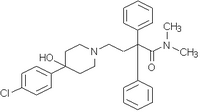What is traveler's diarrhea?
Traveler's diarrhea can occur when you go to another country (usually a developing country). It also can occur shortly after you get home.
Who gets traveler's diarrhea and why?
Anyone can get traveler's diarrhea. About one half of all people traveling from developed countries to developing countries get it. Germs in food or water (from unclean conditions) cause this diarrhea.
How can I tell if I have traveler's diarrhea?
You probably have traveler's diarrhea if you have at least three loose stools in 24 hours. You also will have one or more of the following symptoms: fever, vomiting, stomach cramps, or bloody stools. You also can have a milder case with sudden watery diarrhea and stomach cramps.
How is traveler's diarrhea treated?
Traveler's diarrhea often is treated with antibiotics. You also can take loperamide (brand name: Imodium), but don't take it without an antibiotic if you have bloody diarrhea. Children, pregnant women, older adults, and other people who get dehydrated easily should drink rehydration solutions. You can buy packets of rehydration salts (to be mixed with safe water) at camping/outdoor stores or drug stores. If your child has a fever higher than 102oF, is dehydrated, has blood in the stool, or vomits several times, he or she should see a doctor right away.
What can I expect?
If you don't treat traveler's diarrhea, it usually will go away in four to five days. But treatment with an antibiotic and loperamide often can cure you within 24 hours. If you are not better after taking antibiotics, talk to your doctor.
How can I prevent traveler's diarrhea?
See your doctor four to six weeks before traveling out of the country. Be careful about what you eat and drink while you are away. Unsafe foods include salads, unpeeled fruits, raw or undercooked meats and seafood, and unpasteurized dairy products. Don't drink tap water. Don't use ice unless you're sure it's made from purified water. Bottled water is probably safe, but be sure the cap and seal are not broken. Don't eat food from street food stands.
Where can I get more information?
You can find more information about traveler's diarrhea at the Travelers' Health section of the Centers for Disease Control and Prevention Web site (http://www.cdc.gov/travel/diarrhea.htm).
COPYRIGHT 2005 American Academy of Family Physicians
COPYRIGHT 2005 Gale Group



